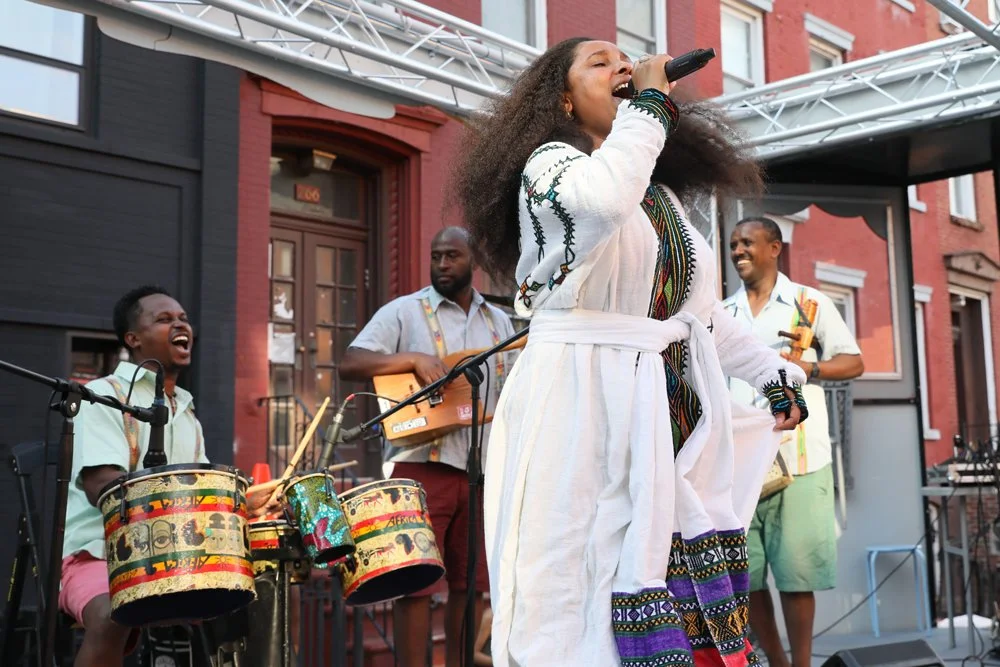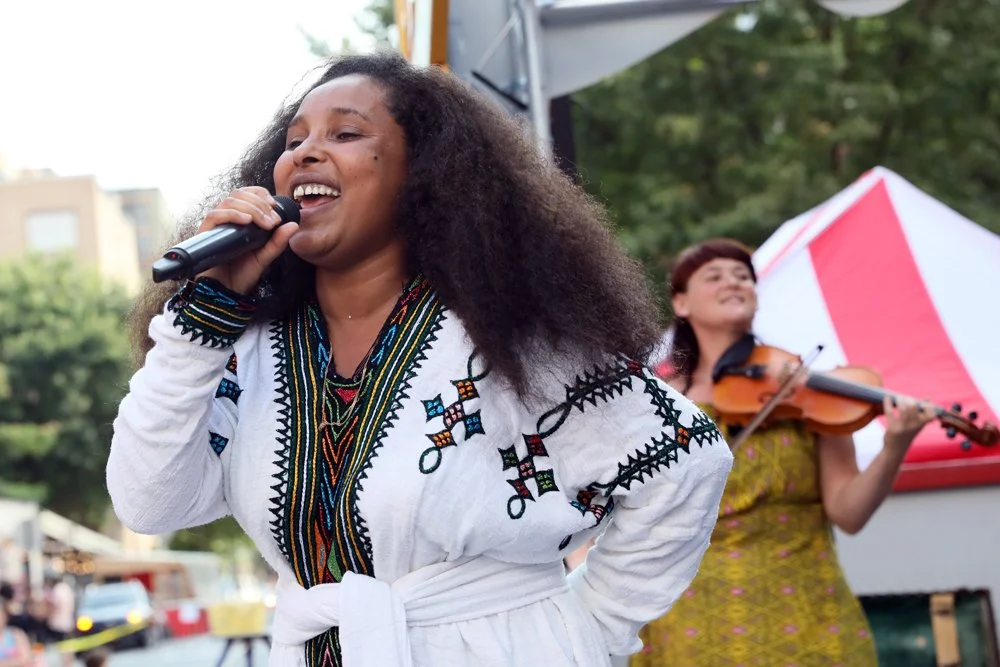Qwanqwa (L-R) Kaethe Hostetter, violin; Selamnesh Zemene Taye - vocals; Endres “Endris” Hassen Ahmed - masinko; Anteneh “Bubu” Teklemariam Barago - bass krar; Misale Legesse Muleta - kebero
Kaethe Hostetter is a New York-based violinist whose solo performances, “Impressions of Ethiopia for Violin and Electronics” recontextualizes music she encountered over her 11 years in the East African country. This spring we will hear her in a more traditional context as her band QWANQWA arrives for a US tour, 39 dates in two months beginning March 31st in Providence.
Qwanqwa (L-R) Misale Legesse Muleta - kebero; Anteneh “Bubu” Teklemariam Barago - bass krar; Selamnesh Zemene Taye - vocals; and Endres “Endris” Hassen Ahmed - masinko;
QWANQWA will perform music from regional traditions of the country and one rock and roll cover that they have been rehearsing remotely for the tour. Kaethe told us “Each character is really important to the group, how each approach their songs, I really wanted to highlight each individual and their way of using their instrument.”
Standing out is the date at Roulette, in Brooklyn, April 3rd. That night will be a collaboration with cellist Tomeka Reid and her string trio Here in Now, called “Weaving Strands of Sound”. Improvisation is an element of both jazz and Ethiopian music, so the concert promises to be intriguing listening as they share stylistic improvisational techniques. The Ethiopian traditional string instruments, masinko (played by Endres “Endris” Hassen Ahmed) and bass kra (played by Anteneh “Bubu” Teklemariam Barago) will interact with Here in Now bassist Silvia Bolognesi on and Yuniya Edi Kwon , violin. Drummers Chad Taylor and Misale Legesse Muleta on kebero complete the 9 member ensemble.
Qwanqwa (L-R) Kathe Hostetter - violin; Selamnesh Zemene Taye - vocals; Misale Legesse Muleta - kebero; Anteneh “Bubu” Teklemariam Barago - bass krar
The concert will be live streamed, April 3rd by Roulette Intermedium at this link: https://www.youtube.com/watch?v=X7FGKKMb3SY
Kaethe Hostetter performing at Brooklyn Bowl, September 21st 2023
QWANQWA has released three critically-acclaimed albums -- Volume One (2014) and Volume Two (2015); and Volume Three (2020). Bandmembers have individual projects, Selamnesh Zemene Taye vocals, from the northern region of Ethiopia, comes from an Azmari singing heritage. She has released several solo albums and toured with The Nile Project. The musicians Endres “Endris” Hassen Ahmed on the masinko a one string lute played with a bow, Anteneh “Bubu” Teklemariam Barago, bass kra, and Misale Legesse Muleta, kebero (drums) are also featured in the Atse Tewodros Project and will be at the Ravenna Festival in Milan, Italy this summer.
QWANQWA”S Anteneh “Bubu” Teklemariam Barago, bass kra
Kaethe’s music is drawn on a variety of sources from traditional to the golden era of Ethiopian jazz, the music comes from her experience living and working as a musician for 11 years in Addis Ababa. The violin is not an instrument associated with Ethiopian music so Kaethe’s solo work casts the music in a reflective light.
Kaethe Hostetter performing at Barbes, November 18th 2023






